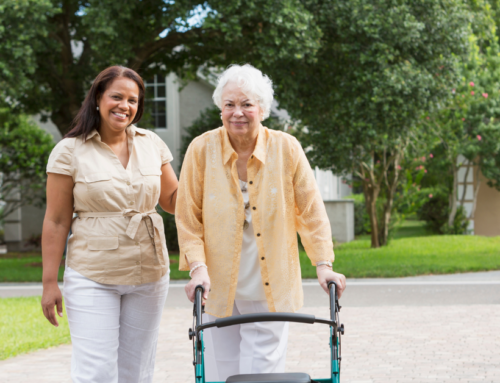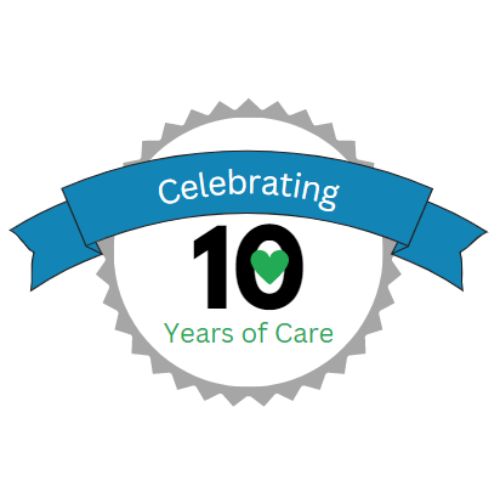Senior citizens, like any adults, want to be independent. Even in their old age, they want to remain in control of their own lives and that’s completely understandable. Still, having some help around the house couldn’t hurt. But as an adult with your own responsibilities, you might not have time to dedicate to helping your parents at home. So, who will take care of them? That’s an easy answer: a caregiver. If you aren’t sure whether or not your parents actually need a caregiver, consider the following.
The Warning Signs
Having a caregiver may be necessary for your parents’ safety and well-being. There are some senior citizens who can manage to take care of themselves and their homes without help. Still the decline in mental or physical functions that comes with age that may inevitably start to interfere with your parents’ quality of life. When this happens, it’s clear they need a caregiver.
Changes in Your Parents’ Appearance and Physical Ability to Look For
- Limited or strained mobility
- Mismatched or unclean clothing
- Notable weight loss
- Sudden decline in personal hygiene
Changes in Your Parents’ Behavior to Look For
- Accusing others of causes problems that aren’t there
- Agitation
- Anxiety
- Changes in cognitive function
- Confusion
- Depression
- Frequent memory loss
- General changes in personality
- Lack of motivation or initiative
- Losing track of time
- Memory lapses
- Mood swings
- Odd behavior
- Paranoia
- Poor judgment
- Reclusiveness
- Repetitive speech or actions
Changes in Your Parents’ Home Maintenance to Look For
- Broken objects lying around
- Dead plants
- Large amounts of unwashed or unfolded laundry
- Old or expired food in the refrigerator
- Overflowing trash
- Overgrown lawn and/or unattended garden
- Piles of unopened or discarded mail
- Stacks of dirty dishes
- Stains on carpets, flooring or furniture
- Utilities turned off due to lack of payments
Changes in Your Parents’ Routine to Look For
- A decline in hobbies
- A sudden change in cooking habits or change in diet
- Appliances left on and unattended
- Calling people during unusual hours
- Constantly losing things
- Clutter or hoarding
- Difficulty getting in and out of bed, in and out of a chair, etc.
- Difficulty walking
- Easily prompted loss of balance
- Falls and other accident seem to get more and more frequent
- Forgetting to take medication or taking it at the wrong dosage
- Frequently missing phone calls from friends and family
- General isolation from family and friends
- Getting lost on familiar routes
- Going to bed earlier than usual
- Infrequent showering or bathing
- Leaving bills unpaid
- Little to no social interaction
- Losing or misplacing mail
- Pets seem to be neglected or uncared for
- Regularly missing doctor’s appointments
- Sleeping more or less than usual
- Stay up later than usual
- Trouble performing simple tasks
- Vehicle damage
Signs of Injury to Look For
- Bed sores
- Bite marks from pets
- Bruises
- Bump
- Burns
- Cuts
- Limping
- Scratches
If your parents seem to be experiencing one or more of the indicators listed above, be sure to talk with them about their needs.
Your Parents Have to Be the Ones to Decide They Need a Caregiver
Forcing a caregiver onto your parents isn’t fair and will be an unpleasant experience for everyone involved. After all, it can be difficult for caregivers to be helpful if their presence isn’t wanted by the people they’re taking care of. Additionally, assisting seniors who insist they don’t need help may trigger outbursts that could spiral into injuries. It is for this and other reasons why it is always best for the seniors themselves to decide they need a caregiver. So, when talking to your parents, be sure to do it in such a way that allows them to recognize the problems you’ve been noticing. They’ll most likely agree that the solution is to find a caregiver.
When Your Parents Need a Caregiver, Call Florida First
Change isn’t easy. Your parents’ decision to welcome someone new into their home for the purposes of helping them with tasks they used to be able to do themselves can be a troubling, daunting experience. That’s why it’s your responsibility as their adult child to assess whether or not they need a caregiver and if you think they do, to handle the situation with sensitivity. Our caregiving referrals at Florida First Senior Home Care are available for your parents if and when they decide that they need a caregiver. Call 561-717-7224 for more information.







